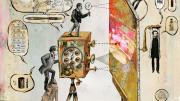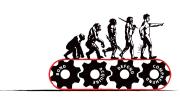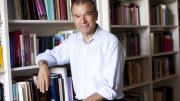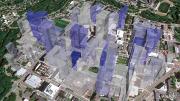Right Now
The Veil’s Revival
Veils have seen a resurgence among young Muslim women worldwide. Is this a step backward, or a marker of progressive politics?
High-Tech Art Sleuthing
Conservators are using laser-assisted pigment analysis to identify and authenticate the work of modern artists.
From Human Nature to Human Resources
By reading Darwin, a business school professor has found a unifying way to think about human motivation.
George Whitesides lab snuffs small flames with electricity
Harvard scientists have discovered how to extinguish flames by pushing them off their fuel source with an electric field.
Shelly Greenfield's research finds gender differences in recovery from addiction
Studying the differences in addiction and recovery between men and women
Stephen Greenblatt traces how Lucretius in "De Rerum Natura" shaped the present
Stephen Greenblatt traces the influence of Lucretius, through De Rerum Natura, on modern thought.
Designing throughways for wildlife
A winning proposal to keep cars and critters apart
“Water cooler" effect may improve scientific research
Proximity appears to foster quality.
Sean Dorrance Kelly’s "All Things Shining" and the pursuit of a meaningful life
In a new book, All Things Shining, philosopher Sean Dorrance Kelly confronts modern nihilism with a guide for learning how to live a meaningful life.
Rose McDermott links polygyny to poor health and social outcomes
Polygyny has mainly negative consequences for women, children, and unmarried young men—and is linked to violence among nations.








